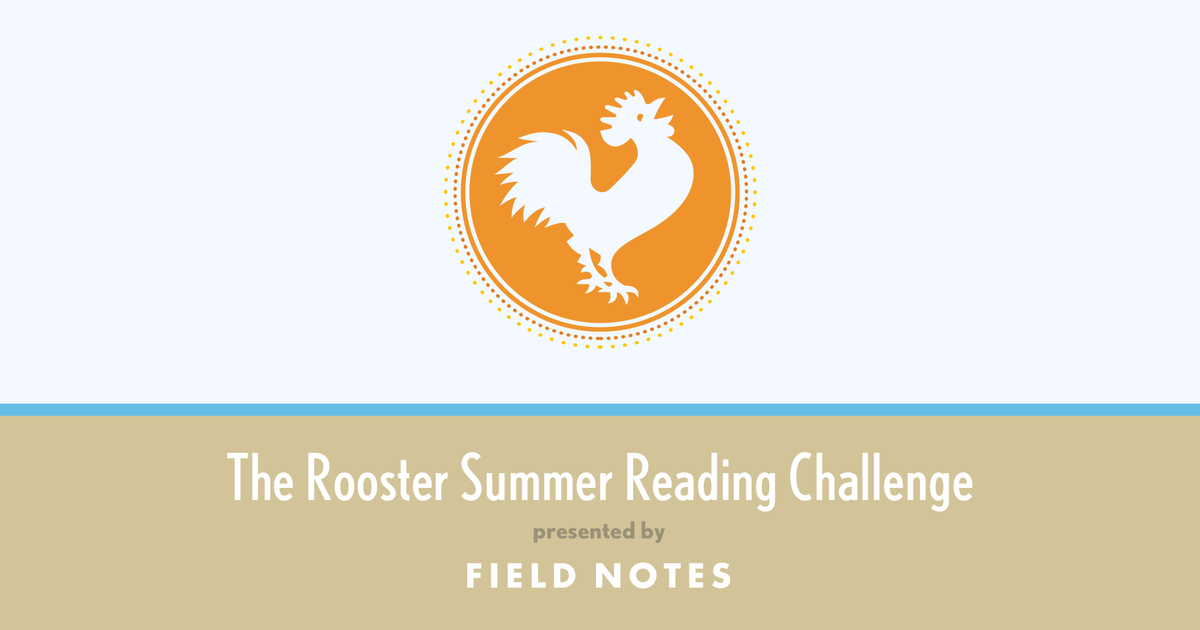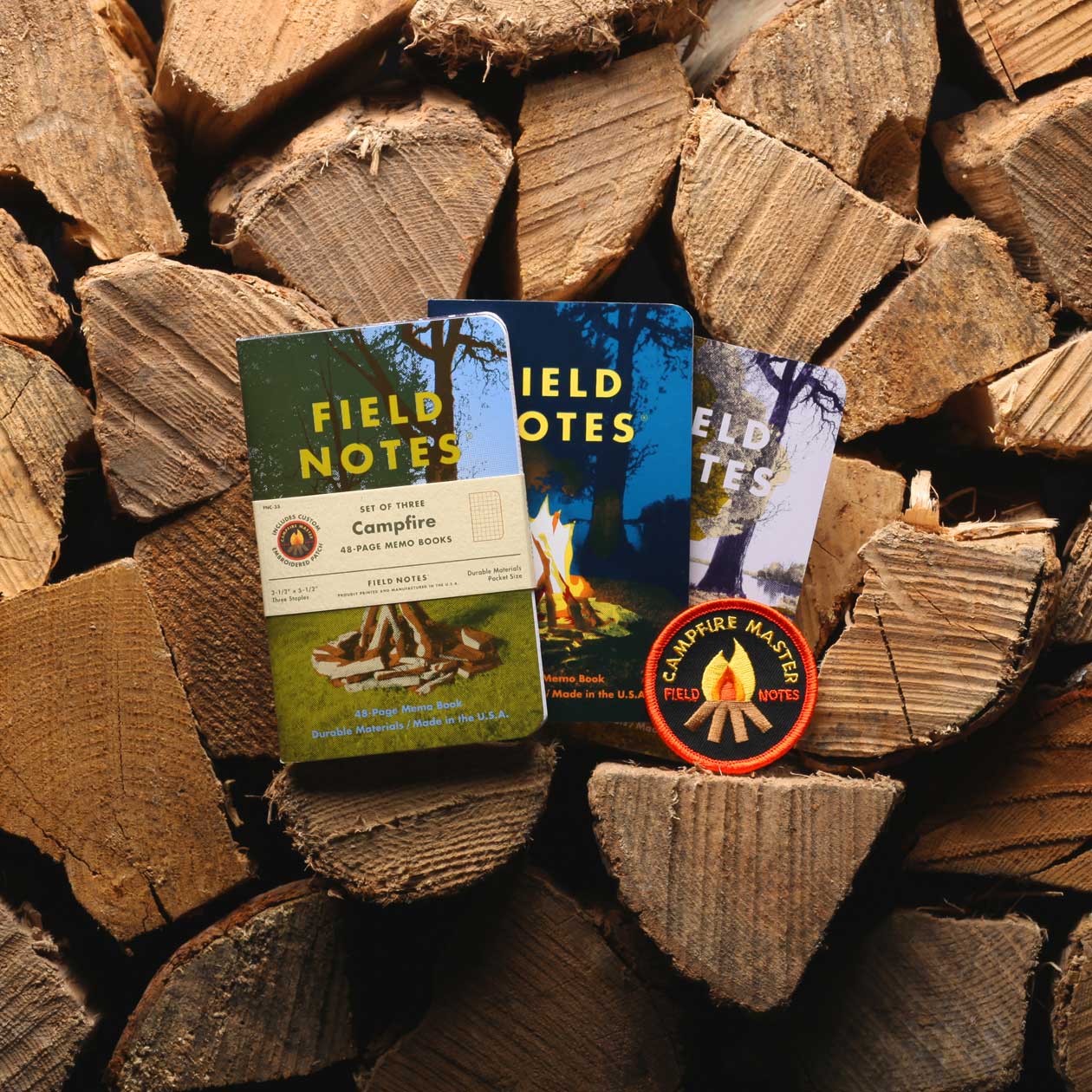The Rooster Summer Reading Challenge: Week Eight
This week we discuss the conclusion of Marlena—and make the call on whether it or Ill Will makes it to our summer final on Aug. 30.

Welcome to the Rooster Summer Reading Challenge, brought to you by The Morning News Tournament of Books and our presenting sponsor, Field Notes. All summer long, we’re reading two novels a month and reconvening on Wednesdays to discuss the books. Joining our chats is a monthly guest judge, who at month’s end decides which title heads to our summer championship on Aug. 30—when you choose which book gets an automatic berth in the 2018 Tournament of Books.
For July we’re reading Ill Will by Dan Chaon (selected by the ToB Committee) and Marlena by Julie Buntin (chosen by Rachel Khong, who will be joining us in August), with novelist Amelia Gray.
- Plan your summer reading: Temporary People (first half by Aug. 2, finish by Aug. 9); Fever Dream (first half by Aug. 16, finish by Aug. 23)
- Catch up on previous chats: A Separation (first half, second half), The Night Ocean (first half, second half), Ill Will (first half, second half), Marlena (first half)
- Jump into this week’s discussion in the comments
Last week we read the first half of Marlena. This week we’re discussing its conclusion, and our July judge, Amelia Gray, will decide which novel from this month’s matchup—Marlena or Ill Will—proceeds to our summer finale.
Rosecrans: Before we get into Marlena, I want to extend an enormous thank you to Amelia. I highly encourage you all to check out her new novel Isadora, and take a peek at her latest story, “The Hostage,” wherein she snuck the phrase “Motherfucking Heist King” into the august pages of the New Yorker.
Amelia Gray is the author of five books. Her fiction and essays have appeared in the New Yorker, the New York Times, the Wall Street Journal, Tin House, and VICE. Her new novel, Isadora, was published on May 23.
Rosecrans Baldwin is the author of You Lost Me There and Paris, I Love You but You're Bringing Me Down. His nonfiction appears in a variety of magazines, most often in GQ. He co-founded TMN with publisher Andrew Womack in 1999. His latest novel, The Last Kid Left, was published on June 7.
Now to Marlena. On a plot level, the book is pretty much spoiler-proof. We knew from the beginning that Marlena would die, we could guess by what path, and we knew Cat would be forged by this relationship in ways good and bad and was still grieving in the present day, in a life made messier by a drinking problem. In the second half of the book, young Cat discovers through Marlena “the horrible pleasure of being not good,” a world of “new edges.” One that includes both the allure of Marlena’s rough existence, until it rubs away—drugs, sex, crime, dropping out of school—and the reality of her own family living on food stamps. It’s strung together with some lovely, illuminating lines. “The truth is both a vast wilderness and the tiniest space you can imagine.” Or, during a scene when older Cat is struggling with sobriety, and she takes her mother to Las Vegas: “Just have a drink, honey, she said every night at dinner, holding the baseball-sized goblets of wine that I paid for. If you’re an alcoholic, what am I?”
Amelia, how did the novel finish for you? Were concerns of yours in the first half addressed?
Amelia: Looking back on the final chapters of Marlena, the book very much became like the dregs of a party, that last half hour when you run out of table space for your bottle and the ashtray looks like something out of child’s deranged craft session. Visually on the page, I got this sense; the scenes got shorter, the moments speeding up. I read faster, sensing the end of Marlena’s life and wondering how Buntin would get there, how it would be handled.
I felt some strange but notable disappointment that Marlena as a character receded until she became a body, and then the body was found as if it had been discarded from the world and the narrative at once.
Rosecrans: That’s really interesting, I hadn’t thought of it that way.
Amelia: I know that’s very accurate to the feeling of losing someone to addiction, though, and so perhaps my disappointment comes from that reality rather than any preference for confrontation or climax. What about you? How did you feel when that Grosse Pointe hiker spotted her coat through the pines?

Field Notes Limited-Edition for Summer is Campfire. Campfire features three original photos that have been line-screened and carefully spot-printed, for a vintage feel, and each pack comes with a custom “Campfire Master” patch, ready for your scout sash or messenger bag.
Rosecrans: I felt well prepared. The narrative’s inevitability is so present, so imbued in the story—that we would witness Marlena’s downfall and the demise of her father, and also Cat’s survival—that it grew on me. I’d say I enjoyed the second half of the book more, I think, in part, because the scenes were shorter, the details less stockpiled, the sense that adult Cat had had all this time to dwell on this period of her life. Looking back, did you feel persuaded or put off by the narrator’s knowingness? At one point, and I’ll paraphrase here because I can’t find the quote, Cat talks about how she got out of Silver Lake and has never stopped looking back—
Amelia: “I made it out, just like I wanted, and not once have I stopped looking back.” (page 264) That line stuck out to me as well, I liked the feeling of it.
Rosecrans: Yeah, I could put checkmarks next to several lines that rang bells of truth for me. E.g., at one point, Cat talks about how everyone has secret lives, but when girls have best friends, they feel like they can live in that secret together—and I said out loud, “Yo, boys too!” At the same time, that sort of level-headed awareness sometimes left me detached, struggling for traction. What about you?
Amelia: Yo, Boys Too! would be a great Teen Bop style magazine for tween-boy fandom. You know, I had trouble with the detachment brought on by the awareness of the present day as well, and I don’t think it’s a problem of Marlena so much as it is a feature of the form; when you’ve got a protagonist looking back, we’re necessarily looking through this lens of adulthood. Actually I thought there was real opportunity to subvert that level-headed awareness as she was getting drunk, but then you’re in the murky territory of your protagonist stumbling through your scenes. I dealt with that a lot through Isadora, wrangling a protagonist who was fully sober for maybe a page and a half.
The minute we see Cat downing martinis in New York, we gain the nice comparative perspective on the past, and maybe this payload of trauma, but in gaining that we lose the blue-sky feeling of not knowing where a protagonist is going to go from these moments. We know where she lands mentally and physically, bellied up to a hotel bar. Some readers might prefer that movement, finding they can focus more on the story without the anxiety of whether or not Cat will make it out alive, whether she’s going to escape and land in a cranberry marsh in Wisconsin. That’s where I wanted her to go. What’s your escape plan, your Cat alt-reality?
Rosecrans: I have her running a halfway-house surf camp in Nicaragua, partnered with the Holly Hunter character from season one of Jane Campion’s Top of the Lake—but I probably had too much coffee this morning. So, anyway, today’s the day we ask you to advance one of these books to the summer’s finale. In making your decision, what criteria matters most to you right now?
Amelia: I know from enjoying the Commentariat for the past few weeks that readers come to the page for different reasons. I’m looking for ideas that expand my own, moments of insight into the human condition. Also, great stories about flotation chambers.
Rosecrans: I knew you weren’t joking about that isolation tank! So, which book will it be, and why?
Amelia: It was a pleasure reading both books, in how they spoke to one another about loss and the past. Marlena brings us all the complicated feelings of letting a troubled friend go down the path which could destroy her, a story told by a protagonist who finds herself on that path herself. Ill Will was a meditation on memory through a few different lenses: a character contending with a life-altering event he tried to alter or control in his own memory of it; another trying to obliterate memory with drugs; another trying to run from the past. “It was the spirit of the truth, at least; it represented the essence of what they knew about Rusty and what he was capable of, even if it didn’t necessarily happen in that order.” (Ill Will, Kindle version, page 274) I found Ill Will at its best when those ideas were seated at the forefront.
That idea of the spirit of truth had some connection to Marlena in my experience of it. We get the spirit of Marlena through the memories of a woman who at turns idolized, obsessed, and agonized over her. Marlena gets frozen in time, the experience of her seemingly unaltered in Cat’s mind by the years which follow. “You’re trying too hard to convince me, I imagine she says. I forgive her for being a skeptic. She’s still eighteen.” (page 247) I found the book shone brightest in those moments Cat felt the distance between herself and her old friend.
For this round, however, it’s Ill Will for me. Ultimately, the riptide of sullenness dragged me out into a sea of ideas about the folly of memory, the way vulnerability turns into avoidance, and the way the spirit of the truth can take over for the truth itself when evidence isn’t forthcoming. I sat down expecting a thriller but found a much quieter book, one whose ideas will stay with me for some time.
This month’s winner: Ill Will
With that, we now have two of our three contenders for our Aug. 30 final: The Night Ocean and Ill Will. Next week we kick off a new month of discussions with our August judge, Rachel Khong, in conversation with Nozlee Samadzadeh, who will chat about the first half of Temporary People, through page 118. See you then!

